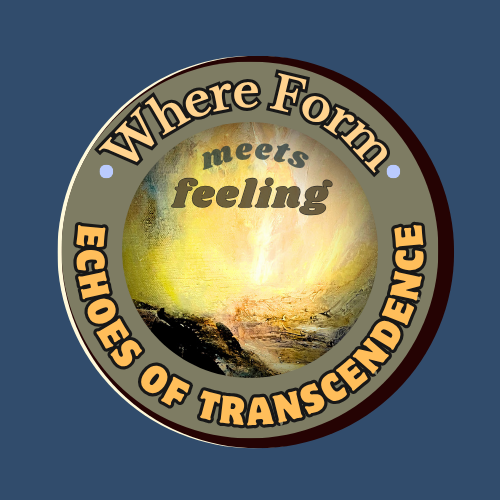
Insane World Quotes
Share
Quotes abound by famous people about an insane world - why? Because most people have not yet come to realise how truly insane the world is! Here's my take on how to understand the nature of the world:
The Rules of an Insane World are as follows:
Primary Rules
- You must please God
- You must work hard
- You must care for others and the world
- You must not be selfish!
These we might refer to as the four primary rules of sacrifice. You may substitute ‘God’ with ‘yourself’ or any other figure(s) held in authority. The ‘pleasing’ involves much more than casually taking pleasure – it eventually implicates you in a concerted effort and struggle to fulfil all requirements.
Tertiary Rules (the ‘if . . then’ rules)
- If you keep the above rules you will prosper and be happy
- If you don’t keep them you’ll suffer
- If you Try to keep them, you’ll get a measure of happiness in accord with your measure of success in keeping them.
- If you were to give up trying to keep them, God would not be pleased, and you are bound to suffer and die.
We could refer to these as the eight guiding principles for gaining approval – which seems essential to continued life and happiness in this world as we know it.. They are in effect the rules of presentation – to present the body as a living holy (or whole) sacrifice. By trying to keep them, you are assures of a measure of approval, thus a measure of holiness (or wholeness) whilst you’re alive. These rules are also rules of degree – i.e. they will gain you a degree of wholeness, (which is not to be confused with Wholeness – which knows no degrees).
Through these rules the body really wants to die – because ultimately death is the only truly valid sacrifice. Under the system of these rules, everything done in sacrifice to them whilst alive is merely a second-rate substitute for the ultimate. When you are prepared enough for the presentation, you will make the ultimate sacrifice – and it will all be over. No more rules to obey! You will finally rest in peace. Only then will you be free from all rules.
[Unless, of course, you believe in re-incarnation, in which case you’ll have one extra rule:
9. If you really try very hard and succeed in this life, you will no longer be required to return to the arena of rules. You can rest in peace forever.
Now you will finally be Free from all Rules!]
ALL THESE RULES ARE ESSENTIALLY INSANE!
The purpose of the rules, it can readily be seen, is to keep you tied to a view toward freedom. It is future oriented. The final presentation is never in the present, but always sometime in the future - right up to the moment of your death. The aim of the rules then is to ultimately dispense with them. Depending on your belief system, this will end – either in oblivion or rapture. So, through the rules you gain a sense of purpose and also a vague feeling of security.
[There is one final belief that might add spice to the story: the ancient belief in hell, or something similar. The effect of this belief would be either a tightening up of all rules (due to fear), or a total self-abandonment – giving up entirely on all attempts to keep the rules, knowing you don’t stand a chance.]
THE PURPOSE OF THE RULES IS LIKEWISE INSANE
Please understand that none of these rules are real – and yet we have made them real for us. Thus the whole world – together as one – in some insane way has manufactured or conjured up an illusion of reality. Rather than ‘reality’, we would be more accurate to call this ‘ruality’. (You might discerningly note the similarity with ‘duality’, in which one is not whole – but divided). Within the illusion there is much scope for confusion, depending on which beliefs are chosen. But one thing held in common is holding to a set of rules. Although accommodating infinite variation, the basic principles remain essentially the same. Also the only way to end the authority of rules or requirements in your life remains true for all – the finality of death. And in order to achieve this release, the body formulates an endless variety of ways and degrees of ageing, disease and decay.
Because the set of rules is an insane illusion, then it follows that the results are also an illusion, i.e. death and its accompanying pre-amble. Further – if death is an illusion, then it must also follow that life as we know it (from birth to death) is also illusionary. All this, when pondered, leads us ultimately to the following questions:
- What Is real?
- Who really am I?
The Answers to these two questions are immaterial – in both senses of the word. In reality these questions really don’t matter! They only matter to us in the context of the illusion we have made – (which is all to do with matter, and all the things that matter to us). All we really need to know is that by understanding the truly illusionary nature of all life as we seem to be experiencing it frees us from the spell of the illusion. This understanding, in effect, undoes the power the illusion holds over us, restricting our natural movement. Seeing life in this way, as if in a dream, we are free to explore who we are, and more importantly, to use the illusion to our advantage.
Return to Sanity
Sanity means health – and is restored by the realisation that we no longer need to remain under any illusion whatsoever – unless we choose to – (and even then, this choice in itself is an illusion.) Exploration of space, outer and inner, is an attempt to satisfy a deep-seated longing to answer the two ultimate questions. Any answers, however, would remain part of the illusion, if in any way they came under the context of the illusion – (life as we know it, from birth to death). In order to perpetuate the illusion, which we believe is real, we will come up with all sorts of answers to satisfy us. This is understandable, because any answer that opposes our illusion would instantly shatter our world. And so we will continue to seek only material answers – in context of the illusion itself. Yet none of these answers will really satisfy – because somewhere deep inside we know who we are, and what is real. Thus scientists who are more in touch with themselves will invariably conclude their profoundly comprehensive discussions with something spiritual.
When answers finally become immaterial, it means we have begun to see through the illusion, and answering ceases to matter. When this happens, we are free from anything that matters. Once nothing matters, then the only thing left must be reality. In other words, by giving up the quest to understand reality and know who you are, you render yourself open to reality, and what you are left with answers both questions at once. What remains is you – and is real. It must also follow that whatever is real in regard to yourself must also be real in regard to everyone else around you. In other words, like the illusionary ‘reality’ we have shared – ultimate reality is likewise shared.
When experienced for the first time, reality tends to render one awestruck and speechless. It is as though the whole illusion has melted away, and you are left with a gentle Summer breeze blowing across the landscape of a peaceful mind, knowing no conflict or grievance. The lack of rules feels almost tangible, and the freedom is felt as an intense surge of fulfillment. Under rules there could only ever be temporary satisfaction – because final fulfillment, the end to end all ends, could only be found in death. Epitaphs the world over bear witness to this context - rest in peace; as though a person never could whilst alive. In the experience of reality, though, there is total freedom from all illusion regarding life or death. In terms we might understand in our ‘normal’ world, the closest descriptions we could muster would be ‘Love’ or ‘God’ or ‘Spirit’. But none of these words would come anywhere close to describing the experience itself. ‘Ruality’ contains everything that can be described, (and don’t we go to town with it?), but reality is utterly unspeakable. Being disencumbered of all rules, there is nothing to do and no-one to defend. There is innocence, there is forgiveness, and there’s a feeling of nothing but life – life continuing on and on. It bears no relation to the struggles of rule, or the delusions of the body. There is no loss – only a sublime realisation of the illusion never having been real at all - only a gossamer figment of imagination.. There is nothing I know of that’s anything quite like it. All I want to do is share this – if you’re willing?
Steve
